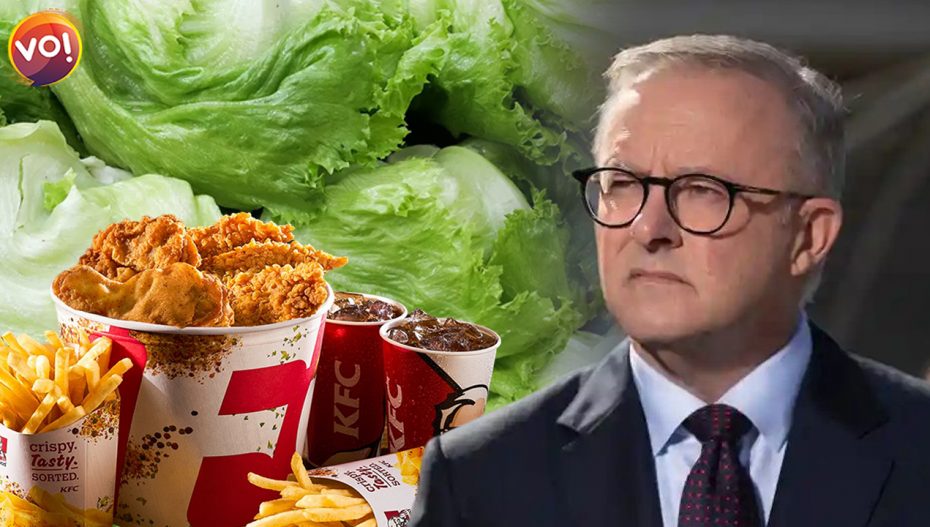Due to shortages of key ingredients, KFC in Australia has had to make menu changes again. Apparently, lettuce is in short supply at the moment.
As a result of recent floods that destroyed lettuce crops around the country, the company went online this week and informed customers that some of its products would contain cabbage.
This short supply has resulted in lettuce prices have rising by as much as 300% in Australian cities. Previously, an iceberg lettuce head cost about $2, but now it’s close to $8 in Sydney and Melbourne. KFC responded by telling Australian customers it would reduce the lettuce in its products and would have a 50-50 mix of lettuce and cabbage.
The statement KFC said, “We’re using a lettuce and cabbage blend on all products containing lettuce until further notice,” citing a shortage following high waters in New South Wales and Queensland.
In addition to those states, KFC restaurants in Victoria, the Australian Capital Territory, and Tasmania will be affected by the changes. Items such as the Zinger Burger and Crunch Twister wrap are expected to be affected. The chain said customers can opt out of the substitution.
As a result of this controversy, Australia’s Prime Minister joked he would meet with top officials Thursday to discuss the soaring cost of lettuce on top of KFC’s decision to substitute cabbage on their Zinger Burgers.
Anthony Albanese, the centre-left leader, called the fast-food chain’s decision ‘crazy’. “Cabbage isn’t the same as lettuce. That’s just wrong,” Albanese told Sydney’s KIIS FM radio. “I’ll put it on the list for the Cabinet meeting today. Cabbage-gate, ” he stated.
Globally, the food supply is being diminished or delayed by a series of crisis, including a pandemic-related labor shortage, adverse weather, and the ongoing conflict between Russia and Ukraine.
In Australia, KFC was unable to secure its most essential ingredient earlier this year: fresh chicken.
Due to a staff shortage caused by Covid-19, it temporarily removed some items from the menu at certain locations around the country.
Meanwhile, in Japan, McDonald’s (MCD) was also temporarily forced to stop selling medium and large portions of fries after delays in potato shipments to the country.
Similarly, milkshakes were temporarily unavailable at McDonald’s in the UK last summer.
Its signature peri dish ran out of chicken in August, so Nando’s, a popular British chain, had to close some of its restaurants.
During the pandemic, Taco Bell and Chick-fil-A were also forced to cut back on certain food options due to ingredient shortages.











